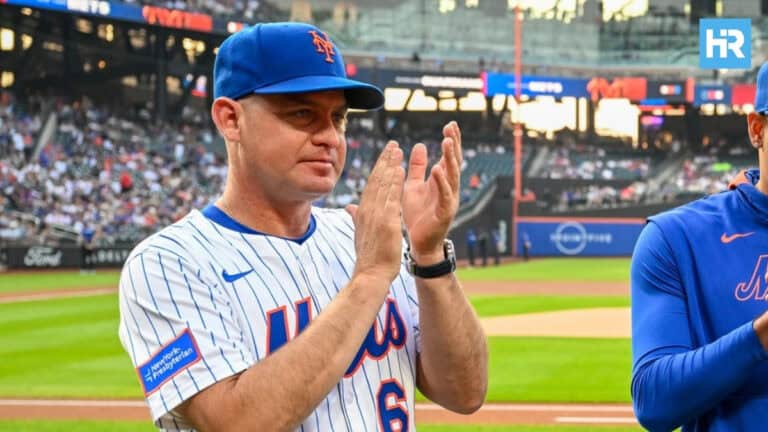
The New York Mets entered June with one of the best records in Major League Baseball. On June 12, they were 45–24 and held a 5.5 game lead in the National League East. Three and a half months later, their season ended without a postseason berth.
The Mets closed 2025 with an 83–79 record and lost the tiebreaker to the Cincinnati Reds. On Sunday, September 28, they were eliminated following a 4-0 loss to the Miami Marlins. With a Cincinnati Reds loss earlier in the day, all the Mets needed was one more win to secure a playoff spot, but they were held scoreless in the finale. The franchise, with a payroll of $341 million — the second-most expensive in baseball history — did not qualify for the postseason.
- The Mets finished 83–79 after going 38–55 in their final 93 games, missing the playoffs following a 4–0 loss to the Marlins and losing the tiebreaker to the Reds.
- Manager Carlos Mendoza will return in 2026 despite player concerns about his communication; the Mets plan significant coaching staff changes this offseason.
- Pete Alonso opted to re-enter free agency, Edwin Díaz is undecided on his opt-out, and the Mets’ pitching staff posted a 5.19 ERA in September, leaving major roster questions for 2026.
Mets Leaders Defend Mendoza Despite Collapse
Despite the disappointment, insiders say the Mets remain committed to manager Carlos Mendoza. According to The Athletic’s Tim Britton and Will Sammon, president of baseball operations David Stearns still “chose the right guy,” and the team “are still happy” with Mendoza even after the collapse.
One person within the organization pointed to his steady demeanor, saying, “I really think he’s done everything in his power. In this market, you want that type of leader: somebody who is steady and going to be honest.”
But not all feedback was positive. Britton and Sammon reported that “a few players thought Mendoza’s communication was not as sharp as it could be. Others suggested that he showed some unnecessary panic early in the season when he kept shuffling roles for different players.” According to their report, those concerns will be part of the offseason conversation, along with expectations of at least some turnover in the coaching staff before next season.
Defensive Errors, Offensive Gaps, and Costly Mistakes
The Mets’ struggles down the stretch were glaring. Over their final 93 games, they went 38–55, finishing with a better record than only the Chicago White Sox, Washington Nationals, Minnesota Twins, and Colorado Rockies.
Defensively, the Mets committed 19 errors in their last 29 games. The miscues went beyond statistics, too, as mental lapses repeatedly cost them opportunities — missing cutoff throws, failing to cover bases, and neglecting to back up plays.
At the plate, the offense was solid overall but inconsistent in key moments. The Mets finished the year ranked sixth in OPS (.753), 14th in batting average (.249), fifth in home runs (224), ninth in runs scored, and 21st in strikeouts (1,325). With runners in scoring position, they were one of the league’s best, finishing top-three in OPS (.806). But when trailing late, the numbers told a stark story: the team went 0–70 in games when behind after eight innings.
Injuries, Rotation Struggles, and Betting Market Fallout
Pitching proved the Mets’ most costly weakness. The rotation began the season with Clay Holmes, Tylor Megill, Griffin Canning, David Peterson, and Kodai Senga, while Sean Manaea and Frankie Montas were recovering from injuries. The reliance on unproven or injury-prone arms quickly became a liability. Senga made only 22 starts, and Manaea and Montas combined to pitch fewer than 100 innings.
Over the final month, Mets pitchers combined for a 5.19 ERA, ranking 27th in Major League Baseball, along with a 1.39 WHIP, which placed them 26th. Starters delivered the 27th fewest innings pitched (796) across the season, forcing a heavily used bullpen into repeated high-pressure situations.
Sunday’s must-win game against the Marlins was a snapshot of the problem. Mendoza had 11 pitchers available, but when the game turned in the fourth inning, he called on Ryne Stanek, who entered with a 5.01 ERA. Stanek allowed two RBI doubles to the first three batters he faced. Tyler Rogers replaced him and gave up two more runs. The bullpen carousel ended with the Mets shut out and their season over.
The collapse extended into the betting markets. In June, when the Mets surged to a 45–24 record, several sportsbooks, including DraftKings and FanDuel, shortened their World Series futures to around +850, placing New York among the top contenders. Earlier in the year, their odds had hovered closer to +1000, reflecting more caution.
As the slide continued and elimination loomed, those futures prices lengthened significantly before being removed once the Mets were officially out. By the start of the postseason, DraftKings listed the Philadelphia Phillies as +425 favorites, though the Mets were no longer on the board.
Sportsbooks typically reopen futures after the World Series, meaning the Mets’ first official 2026 odds will appear later this fall. Early developments, such as Pete Alonso’s decision to enter free agency and the likelihood of coaching staff changes, are already expected to influence how oddsmakers evaluate the team. Analysts have suggested that uncertainty around Alonso’s status and the fragile pitching rotation could keep the Mets outside the top tier of contenders when next season’s odds debut.
Mendoza Accepts Responsibility, Calls for Growth
After the elimination, Mendoza addressed the collapse directly.
“That’s a question that we’re going to have to answer here because, the whole year, I kept saying, ‘We’ve got the talent, we’ve got the talent,’ and here we are — we’re going home. I take responsibility. I’m the manager. It starts with me, and I’ve got to take a long look here — how I need to get better. That was a message to the whole team as well. This is unacceptable.”
While his words captured the disappointment shared by players and supporters, the Mets’ front office has clarified that he will not be dismissed. Andy Martino of SNY confirmed that the Mets have “absolutely no plans to fire Carlos Mendoza off this collapse.” However, he also reported that “notable and perhaps widespread” changes to the coaching staff should be expected in the offseason.
Offseason Decisions: Coaches, Rotation, and Star Players
Although Mendoza remains, the rest of the staff may not be around for that long. Pitching coach Jeremy Hefner and hitting coach Eric Chavez could both be replaced, but no names have yet been connected to potential openings. The expectation is that the organization will bring in new leadership to address weaknesses in both pitching and defense.
Meanwhile, first baseman Pete Alonso and closer Edwin Díaz both have opt-out clauses after the World Series. Alonso has already stated his intention to re-enter free agency, while Díaz told reporters he will consult with his family before deciding.
The Mets do have a promising trio of rookie pitchers emerging, including top prospect Nolan McLean, who debuted in mid-August. That young group offers some hope for building a more stable rotation. But outside of those rookies, uncertainty clouds the pitching staff, and the front office will be under pressure to invest more heavily in arms after last season’s budget-conscious approach backfired.









